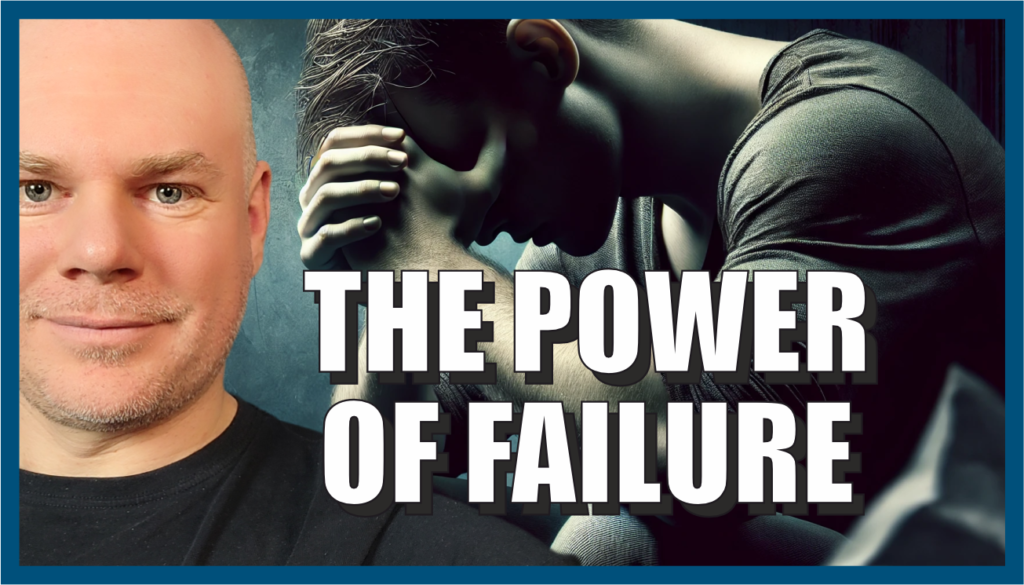We often view failure as something to avoid at all costs. It can feel discouraging, embarrassing, and sometimes even devastating. However, in reality, failure is not the enemy—it’s a necessary and valuable part of personal growth, learning, and eventual success. In fact, failure can teach us more than success ever could. In this blog post, I’ll explore why failure is essential for you to grow as a person, overcome fears, and find success in your life.
Overcoming the Fear of Failure
One of the most significant barriers to personal growth is the fear of failure. Many people avoid taking risks or pursuing new opportunities because they’re afraid they’ll fail. But here’s the truth: You miss 100% of the shots you don’t take. Fear of failure holds you back from trying, and as a result, you miss out on potential opportunities to succeed.
When you embrace failure, it reduces the power fear has over you. The more you fail, the more you realize that failure is survivable and that it often leads to valuable lessons. It’s like building muscle—the more you exercise your ability to bounce back from failure, the stronger and more resilient you become.
Failure Builds Persistence and Character
Failure is not just an obstacle; it’s preparation. Every time you fail, you gain experience and knowledge that brings you closer to success. The process of failing and trying again makes you more persistent. You learn to get back up, dust yourself off, and keep going. This persistence is what separates those who eventually succeed from those who give up.
Moreover, failing builds character. When you experience failure, you understand the value of hard work, patience, and perseverance. It teaches you humility and reminds you that success often requires multiple attempts.
Trial and Error: The Ultimate Learning Tool
Think of failing as part of the learning process. Picture yourself as a mouse in a labyrinth, searching for a piece of cheese. You will try different paths, and some will lead to dead ends. But each failure gets you closer to the right path. Similarly, in life, failure helps you figure out what works and what doesn’t. It’s through trial and error that we discover solutions, strategies, and techniques for success.
This trial-and-error process is fundamental to growth. Whether you’re navigating your career, education, relationships, or personal development, failure teaches you more about yourself and the world around you than success ever could.
Failure Keeps You Humble
Another hidden benefit of failure is that it keeps you humble. When you fail, you’re reminded that you are human and fallible. This humility helps you accept that you don’t need to be perfect or successful at everything. You can’t be good at everything, and that’s okay.
Some people feel the need to constantly prove their worth by being successful in everything they do. But often, this desire comes from a place of insecurity. The more you embrace failure, the more comfortable you become with being imperfect. It’s liberating to realize that you don’t need to be Superman or Superwoman to be valuable.
Failing Builds Empathy and Connection
When you’ve experienced failing, you become more empathetic toward others who are struggling. You understand the hard work, disappointment, and persistence that goes into trying and failing. This empathy makes you a better friend, colleague, and mentor.
Success stories are inspiring, but they’re even more powerful when they’re filled with examples of setbacks and failures. It’s through overcoming hardship that we gain the wisdom and insight to help others. Failure, therefore, doesn’t just benefit you—it benefits the people you share your experiences with. You become a source of inspiration and motivation for others who are navigating their own challenges.
Failure Helps You Discover Your Strengths
Failure is also a guide. It helps you identify your strengths and weaknesses, showing you what you’re naturally good at and where you may need more effort or improvement. For example, if you’re in university and take multiple courses, some will come naturally to you while others may be a struggle. Over time, failure will reveal which areas align with your strengths and passions.
Failing gives you the opportunity to assess your skills and redirect your efforts. By understanding where you excel and where you struggle, you can make better decisions about your career, hobbies, and life goals. This self-awareness is essential for long-term success.

Conclusion: Embrace Failing, Embrace Growth
In the end, failing is not something to fear or avoid. It’s a vital part of growth and success. When you embrace failure as a learning tool, it helps you overcome fear, build resilience, and discover your true potential. Failing teaches you persistence, humility, and empathy, and it guides you toward your strengths and passions.
Remember, success is not just about winning or achieving your goals on the first try. It’s about learning from your failures, growing from them, and becoming stronger, wiser, and more resilient in the process. So, don’t be afraid to fail—be afraid of not trying.



